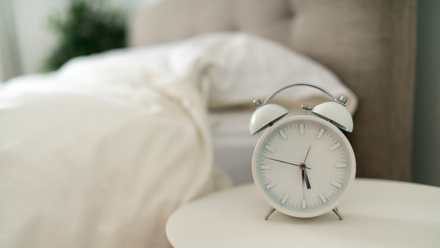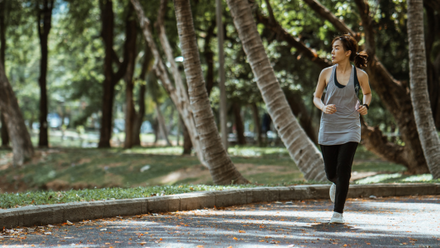Physical wellbeing: what is it and why it’s important
When we spend our professional lives taking care of others, we often need a reminder to take care of ourselves. It is important to know that our physical health is about so much more than just engaging in regular exercise or keeping our weight in check. It’s also about the condition of our bodies, our feelings of wellness and the absence of injury.
In this article we explore the concept of physical wellbeing from a holistic perspective and consider why this is important for you, not only in your physically demanding professional role, but in all areas of your life.
Why self-care is important
Your physical, mental and emotional wellbeing is fundamental for you to maintain a positive work-life balance and to provide quality care for children. You cannot pour from an empty cup, so it’s vital to take time to practice self-care.
Engaging in self-care activities and tending to our own physical, mental and emotional wellbeing ensures we are balanced and can function optimally so that we can give from our overflow, to provide that essential care for others.
The Department of Education states:
“The early years workforce makes a huge contribution to young children’s lives, and a role in early years can be enjoyable and rewarding. However, it can also be a challenging and demanding career. As in any workplace, this can take a toll on an individual’s mental health and wellbeing.”
Physical health refers to the state of the body and its ability to function optimally and requires a holistic approach that includes:
- Engaging in regular physical activity
- Incorporating rest and recovery
- Improving sleep
- Practicing good posture
- Focusing on nutrition and hydration
Engaging in regular activity
There are many different forms of physical activity that can all have a wide range of benefits for your body and overall physical health.
Keeping yourself active can be as simple as taking advantage of opportunities to move more whilst working with the children, for example joining in with their physical, outdoor games or dancing with them to some music. It could also be more intentional, where you make a special effort to engage in particular physical activity sessions that might use different equipment, such as swimming or weight training. More gentle forms of exercise like Yoga and Pilates are effective practices to improve flexibility, balance and strength which are all essential skills for overall physical health.
Incorporate rest and recovery
Whilst regular physical activity plays a significant part in establishing healthy physical routines, it’s also important to incorporate restful periods and recovery activities to reduce physical strain on your body.
Starting your day with a simple stretching routine loosens up your muscles and prepares your body for the day ahead. Taking short breaks throughout the day to stretch, especially focusing on your neck, shoulders, back and legs helps prevent muscle stiffness and reduce the risk of injury.
Implementing relaxation techniques such as deep breathing, meditation or mindfulness exercises, can help to reduce stress and anxiety by allowing the body and mind to recharge, improving focus, memory, and creativity.
Allowing yourself to just take time out to consciously enjoy a glass of water or a hot drink or to sit outdoors and be in nature, are also easily accessible ways to recover from more challenging days.
Improving sleep
Ensuring you get the right amount of quality sleep each night is crucial for recovery and to keep burnout at bay. Get into a good nighttime routine by creating a relaxing environment and allow yourself time to unwind by switching off any electronic devices.
Practicing good posture
To maintain healthy physical bodies, we need to pay attention to how we hold ourselves and move our bodies in the everyday. Make sure you consistently use proper lifting techniques by bending your knees, keeping your back straight, and using your legs to lift children or heavy objects to avoid putting unnecessary strain on your back. Checking your posture to ensure you are sitting correctly you’re your back supported and alternating between sitting, standing and moving around whilst at work helps you avoid fatigue and stiffness.
Focusing on nutrition and hydration
Food is our body’s fuel. Eating a well-balanced diet, rich in fruits, vegetables, whole grains, lean protein and healthy fats provides your body with the right nutrition to give you the energy required, to get through your busy day.
Keep healthy snacks to hand, such as fruit, nuts, natural yoghurt and veg sticks, to maintain your energy levels throughout the day. Keeping ‘energy dips’ at bay should reduce the likelihood of resorting to quick fix, sugary snacks and processed foods.
Drinking plenty of water helps to prevent dehydration which can lead to fatigue, headaches and decreased concentration, which in turn could affect how you care for children effectively.
Conclusion
Working with children is a special and unique sector with the priceless reward of watching children to learn and grow in their first years, establishing strong attachments and healthy attitudes throughout their experiences with you. But it’s also a demanding area of professionalism that puts additional strain on your physical health through the demands of routine care and long working hours.
But, by recognising and tending to all aspects that make up your physical wellbeing you can make a positive change to bring healthy benefits to all areas of your life, including your professional capacity.
Paying attention to our physical health needs can help decrease your stress, lower your risk of disease, and increase your energy but it’s also intrinsic to our wider health needs surrounding the ability to negotiate our emotional lives and cognitive load.
Don’t forget, as a member you can access the Spectrum.Life wellbeing hub through our Healthy lifestyles page. Here, you’ll find a wide selection of live and recorded classes in the digital gym, as well as a whole host of resources on nutrition, sleep and wellbeing in the Content Hub.




